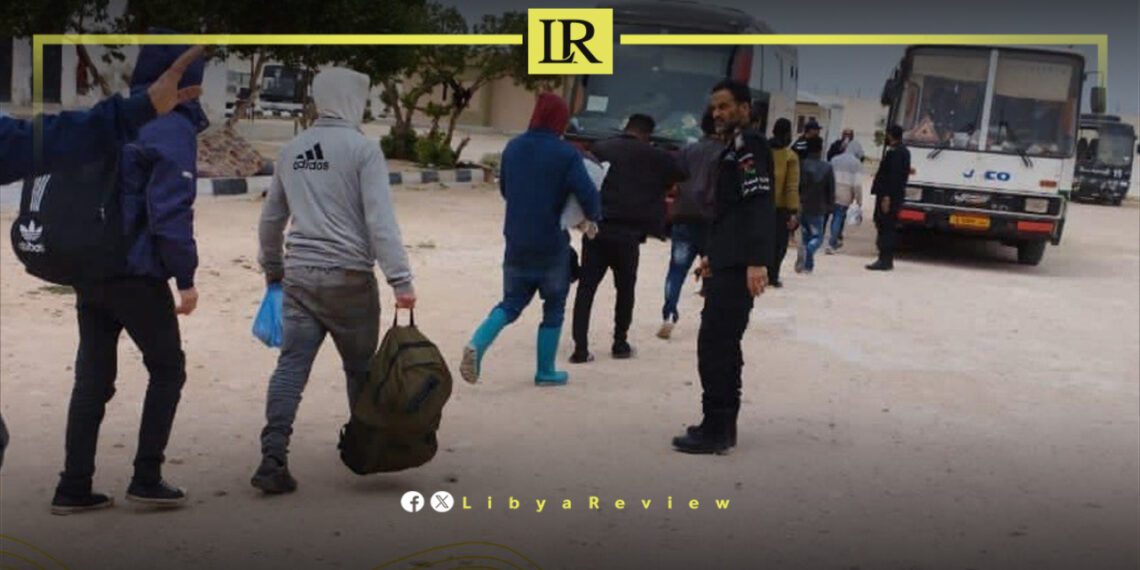The Libyan Anti-Illegal Immigration Authority has deported 85 Egyptian nationals who were detained in the Greater Benghazi area. The deportation, conducted through the Emsaad land border crossing, is part of ongoing efforts to curb illegal immigration.
Among those deported were nine individuals diagnosed with hepatitis, for whom necessary health precautions were taken prior to their return. Additionally, some deportees had been issued expulsion orders by the Public Prosecution, while others were apprehended for engaging in unlawful begging within the city.
The Authority emphasised that deportation operations are continuing in accordance with directives from its leadership, aiming to combat illegal immigration and maintain public order.
Libya has been in chaos since a NATO-backed uprising toppled longtime leader Muammar Gaddafi in 2011. The county has for years been split between rival administrations.
Libya’s economy, heavily reliant on oil, has suffered due to the ongoing conflict. The instability has led to fluctuations in oil production and prices, impacting the global oil market and Libya’s economy.
The conflict has led to a significant humanitarian crisis in Libya, with thousands of people killed, and many more displaced. Migrants and refugees using Libya as a transit point to Europe have also faced dire conditions.
The planned elections for December 2021 were delayed due to disagreements over election laws and the eligibility of certain candidates. This delay has raised concerns about the feasibility of a peaceful political transition.
Despite the ceasefire, security remains a significant concern with sporadic fighting and the presence of mercenaries and foreign fighters. The unification of the military and the removal of foreign forces are crucial challenges.


